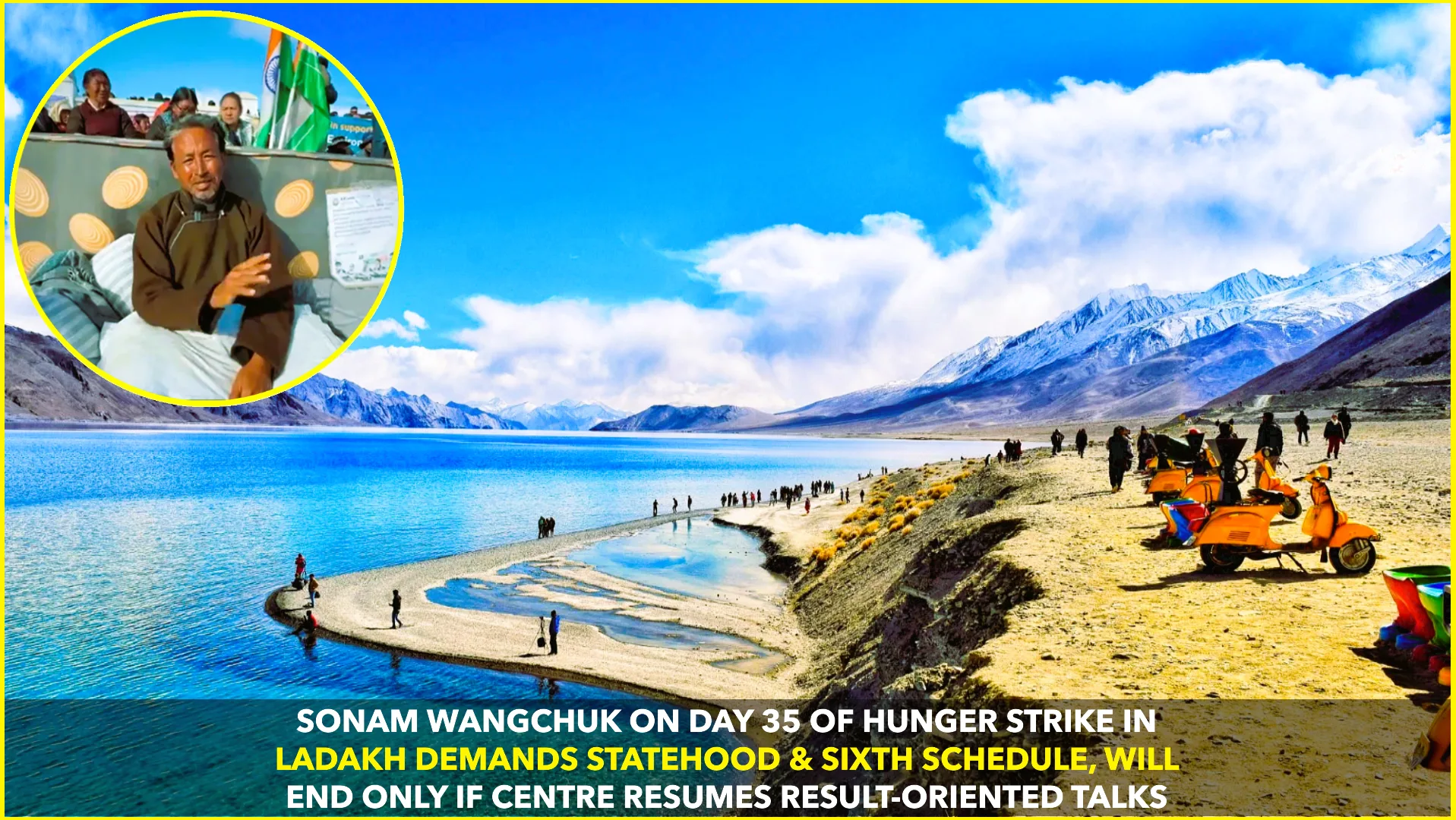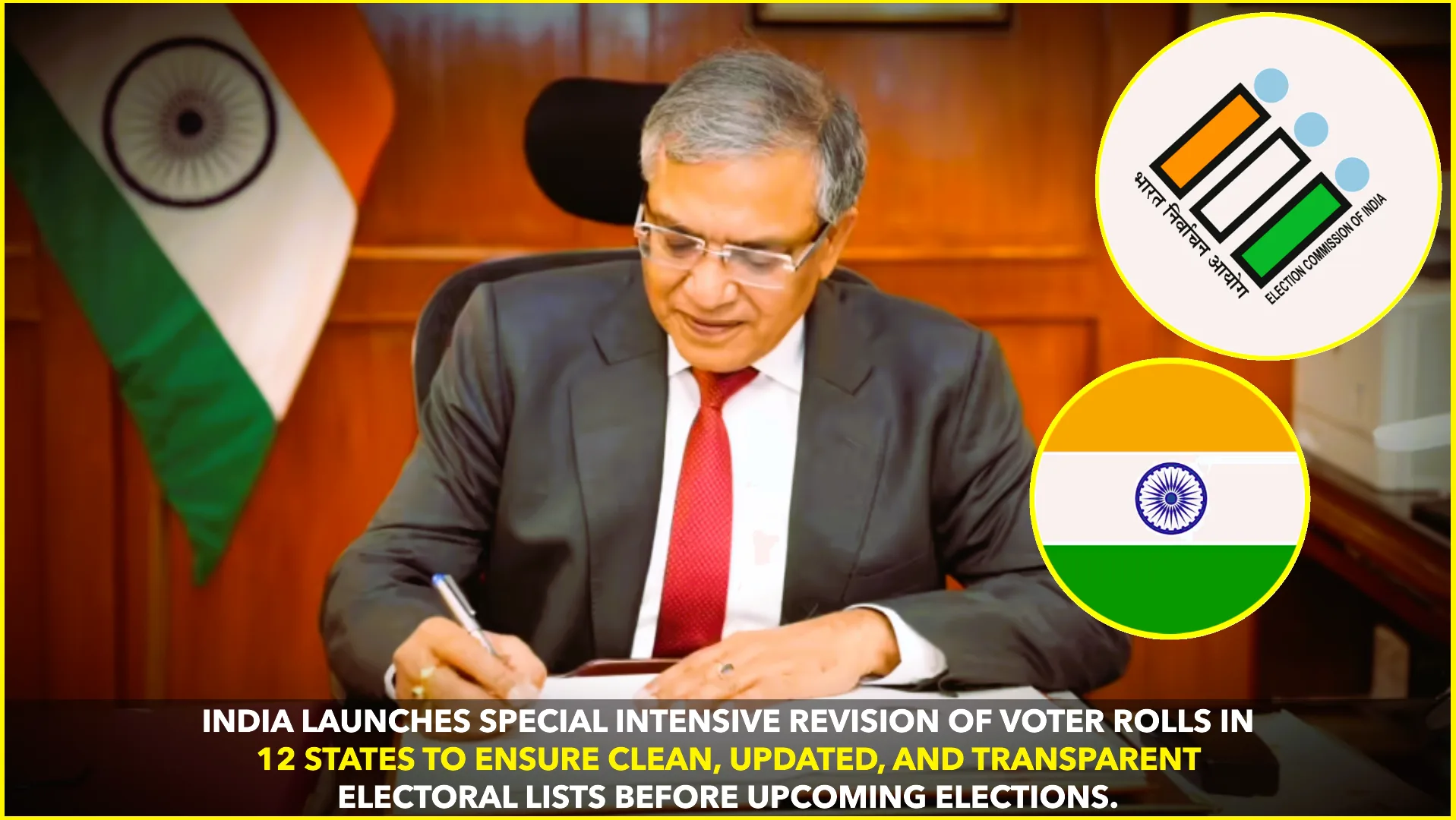Leh, Ladakh – On the 35th day of his hunger strike, climate activist Sonam Wangchuk continues to stage a peaceful yet firm protest in Leh, pressing the Central Government to resume meaningful talks on granting Ladakh statehood and placing it under the Constitution’s Sixth Schedule — a set of special protections for tribal regions Inshorts – Stay Informed+2Scroll.in+2.
A Solo Fast with Collective Roots
Wangchuk launched this strike alongside the Leh Apex Body (LAB), marking it as a continuation of his long-standing advocacy for Ladakh’s political and ecological safeguarding Scroll.in+1. He pledged from the start that the fast would last 35 days, and only conclude if the Centre reopens result-oriented negotiations — otherwise, this fast may continue even longer The Tribune+1.
What’s at Stake: Sixth Schedule and Statehood
Ladakh, separated from Jammu & Kashmir in 2019, lacks a legislature or state status. Over 97% of its population stems from Scheduled Tribes, yet they remain without the enhanced land, cultural and political protections conferred by the Sixth Schedule under Article 244 of the Constitution.
Wangchuk argues that without these safeguards, Ladakhis face the risks of losing their land rights, cultural heritage, and autonomy over critical decisions in their fragile environment Scroll.in+2The Week+2.
Silent Talks, Urgent Elections
He has publicly criticized the Union Home Ministry for halting dialogue over the past two months, despite prior momentum toward discussing core demands. With Leh’s Autonomous Hill Development Council elections approaching, Wangchuk said this silence is especially alarming.
He recalls promises made by the Bharatiya Janata Party during the 2019 and 2020 elections, which included Sixth Schedule status for Ladakh — pledges yet to be fulfilled Scroll.in+2Deccan Herald+2.
Past Protests, Growing Support
This year’s hunger strike marks a pattern of direct action by Wangchuk. In March 2024, he led a 21-day “climate fast” aimed at pressing for constitutional safeguards, drawing over 2,000 supporters in Leh and solidarity marches in Kargil In August 2025, he joined a three-day hunger strike rally in Kargil alongside Ladakh MP Mohmad Haneefa Jan, underscoring mass backing for statehood and Sixth Schedule inclusion The Times of India+1.
Wangchuk’s Health and Message
Despite immense physical strain, Wangchuk has stayed resolute. He refuses to halt the fast until he sees a result-oriented commitment from the Centre. His decision is rooted in both urgency and conviction — Ladakh’s high-altitude landscape, delicate ecology, and tribal population demand constitutional entitlements, he asserts Inshorts – Stay Informed+1.
Why Ladakh Needs These Protections
- Land and Environmental Security: The Sixth Schedule can empower local bodies to govern land use, protect against external industrial or mining pressures, and preserve grazing grounds.
- Cultural Identity and Political Voice: Elective councils under the Sixth Schedule ensure that decisions reflect local priorities, rather than distant administrations.
- Promise and Accountability: With multiple election manifestos featuring statehood commitments, the region’s people want those assurances turned into action as voting approaches Scroll.in+2The Tribune+2.
What the Centre Has Done So Far
After earlier meetings with Ladakhi representatives, the Union Government offered revised domicile and job reservation rules — including 85% reservation for long-term residents and local students running classes 10 and 12 in Ladakh — in mid-2025. While significant, local leaders see it as only a first step, falling short of the autonomy and constitutional scope offered by the Sixth Schedule Scroll.in+1.
What Happens Next?
As of now, no fresh dialogue has been scheduled between the Centre and Ladakhi leadership. Wangchuk remains unwavering in his fast, asserting that only direct engagement with measurable outcomes will permit him to end the protest.
Political observers note that the timing — on the eve of Hill Council elections — places pressure on both the local BJP and national leadership to walk the talk on promises made years ago.
Looking Ahead
Wangchuk’s fast has drawn national and international attention, amplifying Ladakh’s plea for constitutional recognition. Whether the strike prompts meaningful concession or reaches a tipping point of health crisis remains to be seen. Either way, the message is clear: Ladakhis are demanding not just promises, but concrete frameworks to protect their land, culture and governance — and they won’t let go until they get it.










